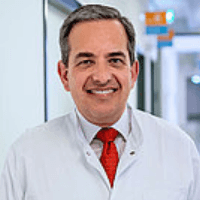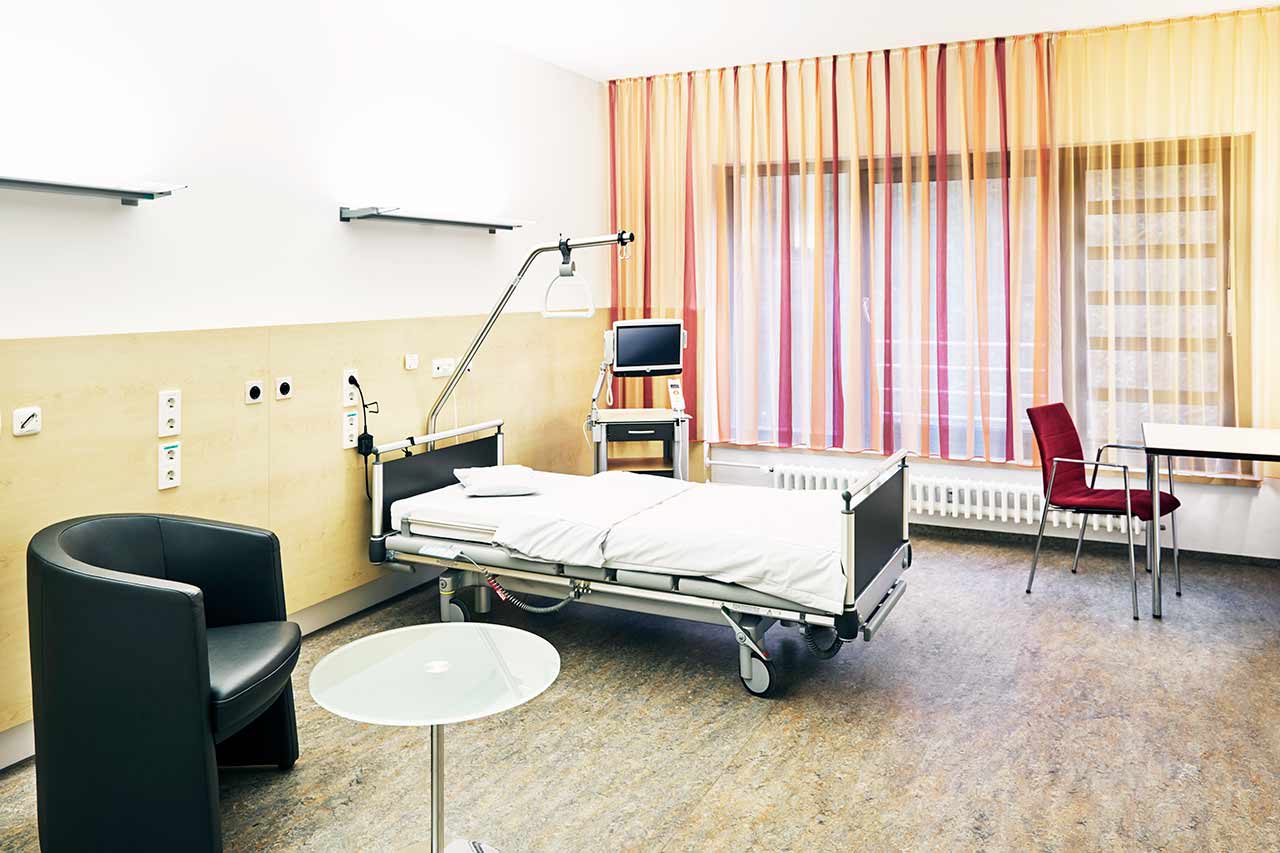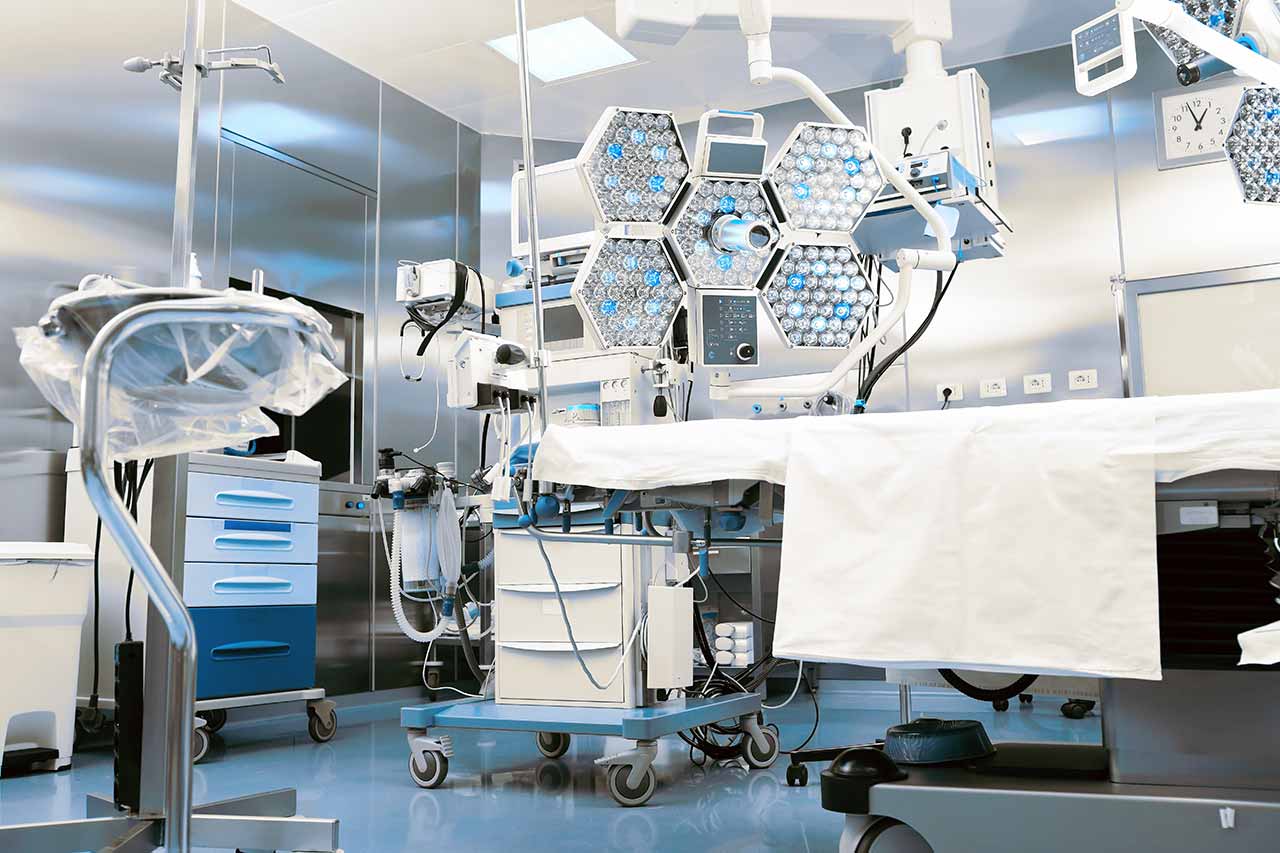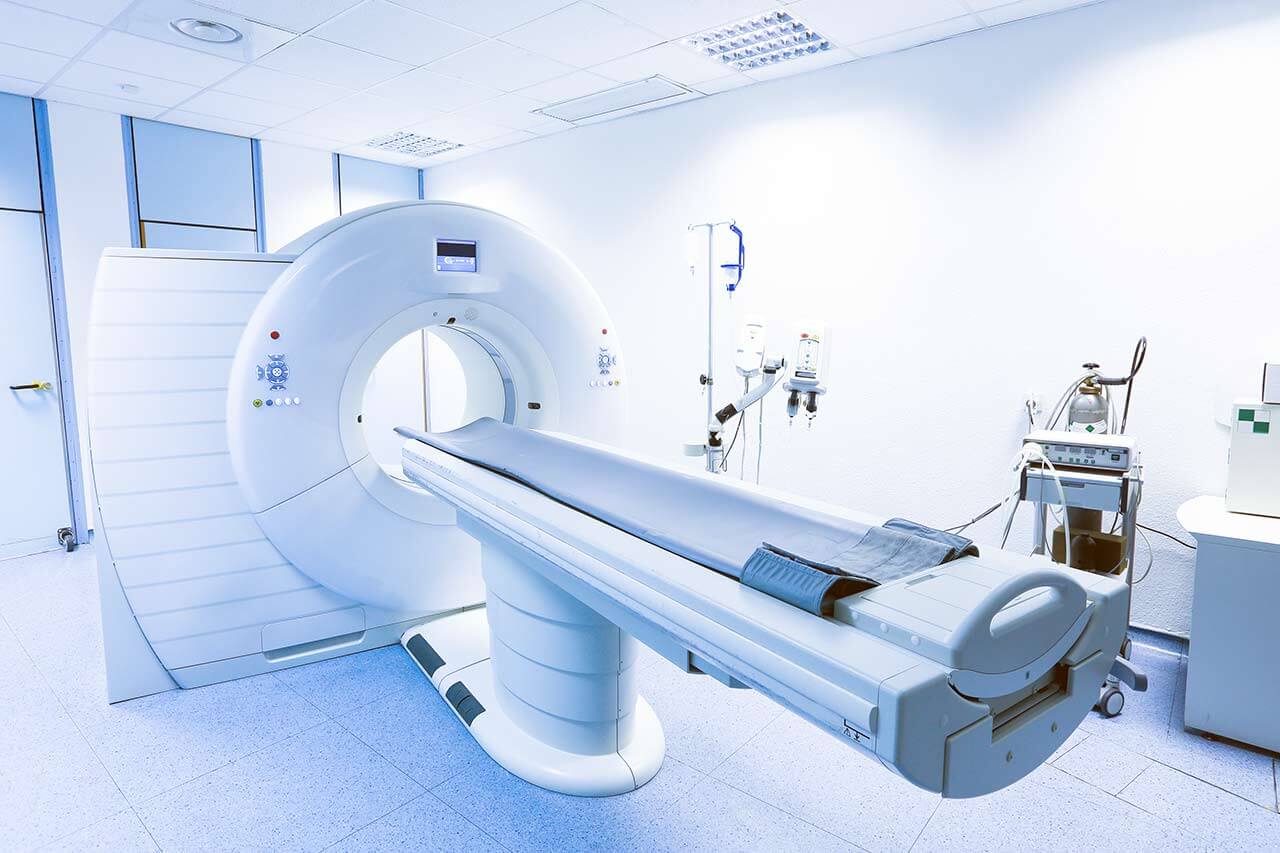
The program includes:
- Initial presentation in the clinic
- clinical history taking
- review of medical records
- physical examination
- urological examination
- laboratory tests:
- complete blood count
- general urine analysis
- biochemical analysis of blood
- inflammation indicators (CRP, ESR)
- indicators blood coagulation
- tumor marker, PSA
- ultrasound pelvic rectal/ abdominal
- CT/MRI of the abdomen and pelvis
- preoperative care
- transurethral resection of the tumor with plastic
- histologically and immunohistochemically
examination of the remote tissues - symptomatic treatment
- control examinations
- the cost of essential medicines and materials
- nursing services
- full hospital accommodation
- explanation of future recommendations
Required documents
- Medical records
- MRI/CT scan/US of the pelvis (not older than 3 months)
- Biopsy results (if available)
Service
You may also book:
 BookingHealth Price from:
BookingHealth Price from:
About the department
The Department of Adult and Pediatric Urology, Andrology at the Hospital Kassel offers the full range of therapeutic and diagnostic services in the fields of its competence. The department specializes in the treatment of any diseases of the urinary system and male reproductive organs. Of particular interest is the treatment of benign and malignant tumors of the prostate, testicles, penis, kidneys, adrenal glands, ureters and bladder. In addition, the department's competence includes medical care for men suffering from infertility and erectile dysfunction. The department also includes the Intensive Care Unit, which admits patients with acute and urgent conditions around the clock. The department has 46 beds for inpatient treatment. The doctors of the medical facility have long clinical experience and have a perfect command of the very latest treatment methods for urologic diseases in both adults and children. For example, one of the most advanced therapies used in the department is holmium laser enucleation of the prostate (HoLEP) for prostate adenoma removal. Each patient undergoing treatment in the department is provided with an individual approach and top-class medical service. The department is headed by Prof. Dr. med. Björn Volkmer.
One of the most common diseases among the department's patients is prostate cancer. The department's doctors conduct comprehensive diagnostics to determine the tumor grade and the histological type of the tumor, as well as its stage and size, the presence of metastases in other organs and anatomical structures. The diagnosis involves transrectal ultrasound scanning, a prostate specific antigen test and a prostate biopsy. Should cancer cells be detected, the patient will have to undergo computed tomography to determine the spread of the disease. The treatment is based on transurethral resection of the prostate gland, which can be supplemented with radiation therapy, hormone therapy and chemotherapy. If the pathology is at an initial stage and does not progress, the department's urologists resort to watchful waiting, while radical therapeutic measures are initiated only in the case of further development of the pathological process. The watchful waiting is very often used in the treatment of elderly men with localized prostate cancer at the early stages.
Another focus of the department's clinical practice is on the treatment of benign prostatic hyperplasia. The department's specialists successfully use the innovative technique called endoscopic holmium laser enucleation of the prostate (HoLEP). The HoLEP technique has been used in the department since 2006, so urologists have extensive experience in this field – the department performs more than 100 such therapeutic procedures every year. HoLEP avoids the use of a scalpel and removes the enlarged prostate through the urethra, thereby minimizing the risk of complications during or after the procedure, as well as significantly reduces the postoperative recovery period (in most cases, the patient can be discharged from the department 3 days after the procedure). The procedure takes from 50 to 140 minutes. Upon completion of the surgical procedure, a drainage is inserted into the bladder to drain urine. The drainage is removed after 2-3 days and the patient can return home to his normal life.
The department's specialists also provide treatment to children with urologic diseases. Most diseases in childhood and adolescence are congenital. These include structural disorders of the kidneys, bladder, hypospadias, penile curvature, varicocele, cryptorchidism, etc. The timely diagnostics and treatment are essential as the development and functioning of organs in adulthood depends on it. Thanks to the most modern equipment and attentive attitude to children, the department's specialists provide both treatment and prevention of various urologic pathologies at the initial stages. The department's urologists establish trusting relationships with young patients and strive to make their stay in the medical facility as comfortable and short as possible. The medical staff pays special attention to the psychological state of the child, surrounding the young patients with care and attention.
The main clinical focuses of the department include:
- Diagnostics and treatment of malignant tumors of the prostate, testicles, penis, kidneys, bladder, renal pelvis, ureters and urethra, including removal of lymph nodes and metastases, as well as chemotherapy on an outpatient and inpatient basis
- Reconstructive surgical interventions in patients after trauma, malformations and urologic cancers
- Diagnostics and treatment of kidney stone disease
- Extracorporeal shock wave lithotripsy
- Ureterorenoscopy
- Percutaneous nephrolitholapaxy
- Diagnostics and treatment of benign prostatic hyperplasia
- Holmium laser enucleation of prostate (HoLEP)
- Transurethral resection of the prostate
- UroLift procedure
- Diagnostics and treatment of urinary disorders and urinary incontinence in men and women
- Diagnostics and interventional procedures in men with infertility and erectile dysfunction
- Diagnostics and treatment of urological diseases in children
- Undescended testicles
- Inguinal hernia
- Hydrocele
- Phimosis (foreskin narrowing)
- Vesicoureteral reflux
- Ureteral stenosis
- Megaureter
- Kidney and ureteral stones
- Enuresis (daytime and nighttime wetting)
- Recurrent urinary tract infections
- Neurogenic urinary disorders in the case of spina bifida, meningomyelocele
- Hypospadias
- Congenital malformations of the genitourinary system
- Genitourinary tumors
- Other medical services
Photo of the doctor: (c) Klinikum Kassel
About hospital
The Hospital Kassel is a progressive medical facility with a huge medical team, which provides high-quality medical services in all branches of modern medicine. The hospital is part of the regional medical Gesundheit Nordhessen Holding, which unites 5 top-class medical centers, including specialized rehabilitation clinics. With 1,281 beds, the hospital is known as the largest medical complex in the federal state of Hesse. The hospital has 32 specialized departments with highly qualified doctors and specially trained nursing staff in each department. The team of 3,200 employees takes care of the health of patients. The main value for each employee is the patient's health. The professional skills of the medical staff in combination with state-of-the-art medical and technical equipment of the hospital provide excellent opportunities for the treatment of patients with pathologies of any severity.
The hospital provides treatment to over 55,000 inpatients and about 140,000 outpatients every year. Medical care is provided to both German citizens and many patients from foreign countries. Such high rates are the evidence of excellent quality of medical services and the high credit of patients' trust.
The hospital has created a wonderful atmosphere, which contributes to the rapid recovery of patients. All diagnostic and therapeutic rooms, operating rooms, as well as patient rooms are designed taking into account modern standards of European medicine in order to ensure maximum comfort of each patient. All employees working in the hospital provide the patient with understanding and respect, as well as support him in every possible way during the entire therapeutic process.
The hospital successfully implements a quality management system. It uses its own quality management system implemented by the medical Gesundheit Nordhessen Holding, as well as the IQM (Initiative Qualitätsmedizin) monitoring system. As part of healthcare quality management, the hospital annually clearly provides reports on its clinical activities, the success of diagnostics, treatment, level of patient care, etc. Thus, the hospital stands for maximum openness in its work and makes every effort to maintain the highest level of quality of medical care.
Photo: (с) depositphotos
Accommodation in hospital
Patients rooms
The patients of the Hospital Kassel live in comfortable single, double and triple rooms. The patient rooms are made in a modern design and pastel colors. A standard patient room includes an automatically adjustable bed, a bedside table, a wardrobe, a table and chairs for receiving visitors, a TV and a telephone. The patient rooms have Wi-Fi. Each room has an ensuite bathroom with shower and toilet.
The hospital also offers enhanced-comfort patient rooms. Most of these rooms have a balcony. The bathroom additionally includes a hairdryer, towels and toiletries.
Meals and Menus
The patient and the accompanying person are offered tasty and balanced three meals a day. If for some reason you do not eat all foods, you will be offered an individual menu. Please inform the medical staff about your food preferences prior to treatment. The patients staying in enhanced-comfort rooms are provided with an individual menu every day.
The hospital also has several cafes where one can have a cup of tea or coffee, taste delicious pastries, salads, main hot dishes, pizza, etc.
Further details
Standard rooms include:
Religion
The religious services are available upon request.
Accompanying person
During the inpatient program, the accompanying person can live with the patient in a patient room or a hotel of his choice. Our managers will help you choose the most suitable option.
Hotel
During an outpatient program, the patient can stay at the hotel of his choice. Our managers will help you choose the most suitable option.





